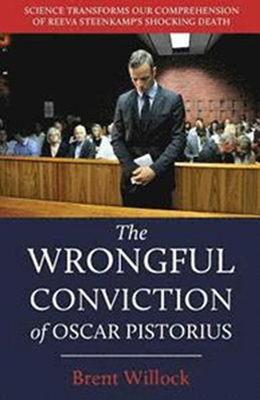
Presenter: Brent Willock, PhD, CPsych
Wednesday, October 14, 2020: 7:30 pm – 9:30 pm
TPS Scientific Meeting: Open to all.
** DISTANCE PARTICIPATION ONLY – This Scientific Meeting is available via Zoom meeting only. Preregistration is required. Please RSVP via email at psychoanalyst@bellnet.ca. Please note that registration closes 48 hours prior to the meeting date.
This evening will interest anyone intrigued by the study of sleep and dreams and their disorders.
Just when the world thought Oscar’s meteoric rise to Olympic glory and international celebrity had terminated abysmally in prison, Brent Willock reopens this gripping narrative for astonishing re-view.
The “Blade Runner’s” life ground to a screeching halt on Valentine’s Day, 2013. Hearing a sound from his bathroom, Oscar grabbed his pistol, screaming at the intruders to leave. Fearing someone was about to emerge to harm him and his girlfriend, Reeva, he fired four bullets. Soon he realized he had killed Reeva. The investigating detective believed this was yet another case where a man murdered his partner. World opinion is split. Some believe Oscar. Others are convinced he committed a despicable crime of passion.
Brent brings an entirely new perspective to bear on these events, namely that they occurred while Oscar was in a simultaneous sleep/wake state (parasomnia). Using scientific scrutiny and legal precedence, he resolves the crucial anomalies surrounding Oscar’s trial, and discusses how mental health experts and lawyers could have overlooked the parasomnia hypothesis that could have exonerated Oscar.
Millions who were inspired by Oscar’s astonishing achievements and triumph over adversity were crushed and baffled by his plunge from grace. Even he, shortly before sentencing, achingly asked, “How did this possibly happen?” This presentation responds to these poignant questions that have plagued Reeva’s family, friends, Oscar, and the world.
Learning Objectives:
At the end of the meeting participants will be able to:
- Increased knowledge of disorders of sleep and dreaming.
- Understanding mixed states of sleep and wakefulness, consciousness and unconsciousness (parasomnia).
- Comprehending the concept of dream enactment.
For more information about and for registration in the tps&i Extension Programs, Scientific Meetings, Training Programs, Study and Supervision groups and Special Presentations, please visit our website: torontopsychoanalysis.com or email info@torontopsychoanalysis.com
